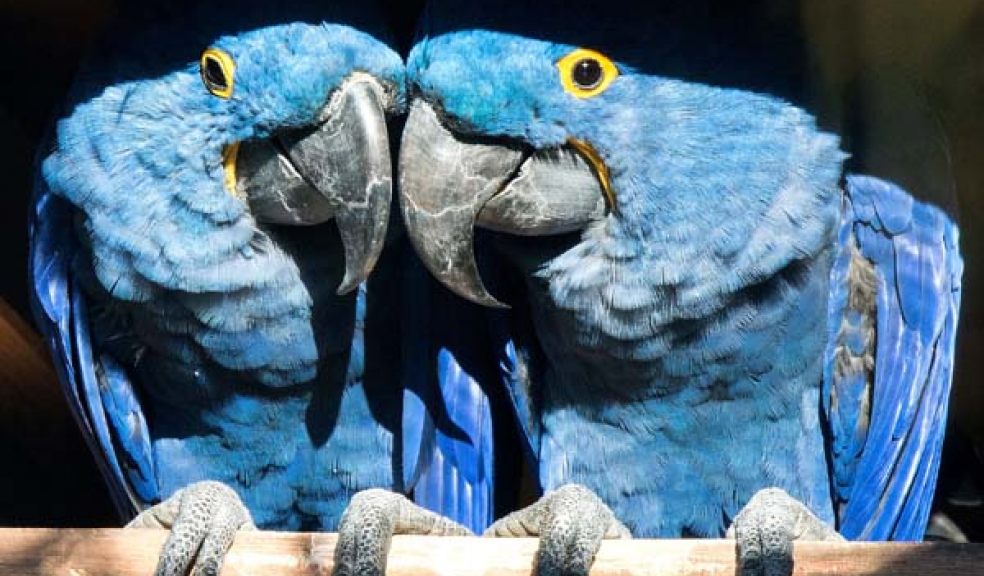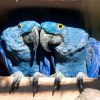
Zoo staff play Cupid for love birds
These love birds at Paignton Zoo Environmental Park are doing what comes naturally, but there can be a lot of hard work behind the scenes to make sure rare species continue to breed.
Paignton Zoo curator of birds Jo Gregson holds the European Studbook for the wrinkled hornbill. “It’s my job to collect and collate information from other zoos on hatchings, matchings and dispatchings for the species and to make recommendations for pairings.” Which means that Jo gets to play cupid.
There are 140 European Studbooks; the system is run by the European Association of Zoo & Aquaria, the body that represents top zoos across the Continent. Each studbook is kept by a studbook keeper who monitors populations, collects data, produces the studbook, reviews the success of the species and assesses management needs.
The Whitley Wildlife Conservation Trust is the charity that runs Paignton Zoo Environmental Park, Living Coasts, Torquay’s coastal zoo, and Newquay Zoo in Cornwall. Trust staff look after a number of studbooks, including those for the Argus pheasant (Jo Gregson and keeper David Westlake at Paignton Zoo) and macaroni penguin (Lois Rowell, senior keeper at Living Coasts).
By collecting and analysing all the relevant information, the studbook keeper can judge if the species is doing well, or if maybe a more rigid management system is needed to maintain a healthy population over the long term.
A full studbook is published every three years with an update annually. Studbooks may include natural history details, information on status in the wild, census reports on the managed population, lists of all the deaths, births and transfers in the year, demographic and genetic analyses and the breeding recommendations.
With rare species there can be a lack of suitable animals to pair up. Animal movement legislation such as CITES and the Balai directive and the need for and availability of quarantine facilities can also limit the process. The collecting, inputting and analysing of data is very time consuming – but for Jo it is undoubtedly worth it:
“Zoos work closely together, making it easier to find the best matches. Just recently I recommended that a male hornbill in Dresden Zoo go to a female at Usti Zoo in the Czech Republic. It is very satisfying to see birds brought together in this way to help the species.”
Paperwork – it may not be romantic but it is essential…



















